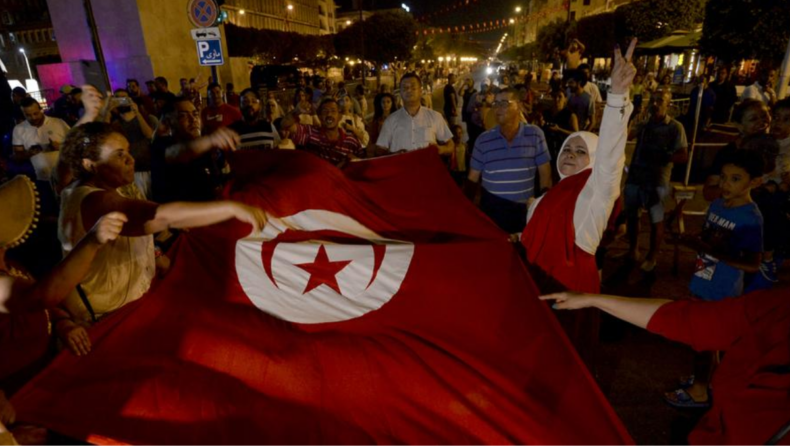
A new Tunisian constitution, which the opposition fears would undermine the country’s democracy by dramatically extending presidential powers.
Tunisia is ready to go into force following a referendum on Monday that looked to pass comfortably but with a low turnout.
President Kais Saied deposed parliament and sought to govern by decree last year. He claims that the country needed to be saved from years of gridlock. While he revised the democratic constitution enacted during Tunisia’s 2011 “Arab Spring” revolution.
Opposition parties boycotted the poll. They accused Saied of staging a coup. Also, claiming that the new constitution he issued less than a month ago heralds a return to tyranny.
The new law gives the president greater authority
The new constitution empowers the president over both the administration and the judiciary. While removing limits on his authority and weakening the legislature.
Meanwhile, Tunisia is facing an impending economic catastrophe. Tunisia is seeking an IMF bailout package—factors that have troubled ordinary people far more than the political crises over the past year.
There was no required threshold of participation for the initiative to succeed. The preliminary turnout was just 27.5 percent, according to the election commission.
Hundreds of Saied supporters gathered on the central Habib Bourguiba Avenue to rejoice shortly after an exit poll by Sigma Conseil revealed a 92.3 percent “yes” vote.
“Sovereignty is for the people”
They yelled, “Sovereignty is for the people,” and “The people want to purify the country,” rejecting fears of a return to tyranny.
“We have no fear of anything. “Only the corrupt and the state looters would be terrified,” said Noura bin Ayad, a 46-year-old woman wearing a Tunisian flag.
Tunisians flocked to the streets in support of Saied’s first efforts against the parliament last year. It unleashed their rage at the political parties they blamed for years of misgovernance and collapse.
However, Tunisia’s economy deteriorated over the last year with no assistance from Saied. So his popularity seemed to dwindle.
“Now that we have given him a fresh political mandate to challenge the political lobbies, we urge Saied to look after our economic position, pricing, and food supply,” said Naceur, one of his fans who was out celebrating on Monday.
Inquiring About Integrity
The largest party in the dissolved parliament, the Islamist Ennahda, claimed Saied had “miserably failed to garner popular support for his coup” and demanded he quit.
Because Tunisia now automatically registers voters, the low turnout rate is difficult to compare to past elections. The previous lowest participation rate for the parliament dissolved by Saied was 41% in 2019.
Opponents of the president have also questioned the legitimacy of a vote held by an electoral commission whose board Saied altered this year and with fewer independent observers than in past Tunisian elections.
Saied, who voted on Monday, praised the referendum as the start of a new republic.
Western countries saw Tunisia as the lone success story of the Arab Spring. They have failed to comment on the proposed new constitution, despite urging Tunis to return to the democratic road throughout the previous year.
“All of them irritate me.” “I’d rather enjoy this hot day than vote,” Samia, a lady lounging on the beach at La Marsa near Tunis with her husband and teenage son, said of Tunisian lawmakers.
Samir Slimane indicated that he did not intend to vote
Samir Slimane, standing outside a café in the capital, stated that he was not interested in voting.
“I have no prospect of ever changing. Saied will not make any changes. “He merely wants to have all the power,” he explained.
Many Tunisians are upset with the parties that have governed since the revolution and disillusioned with the political system they have run.
The government seeks to get a $4 billion loan from the IMF. But the necessary changes, including cuts to gasoline and food subsidies, face heavy union resistance.













